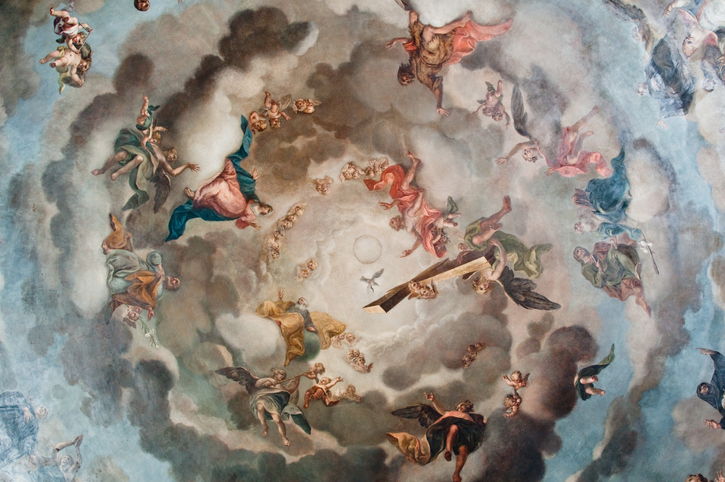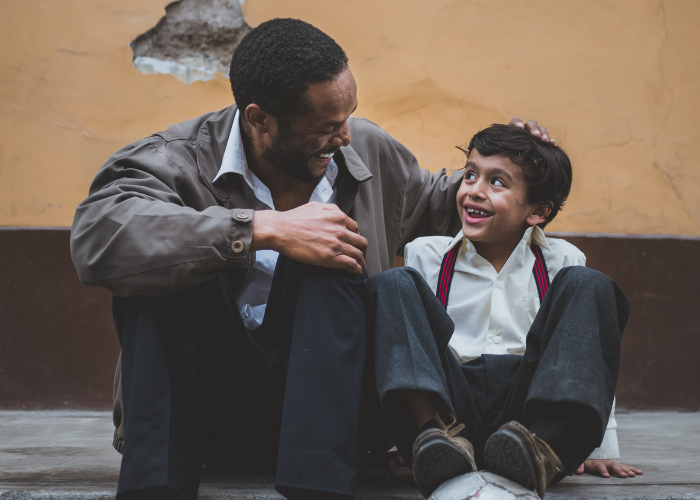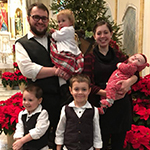Evangelization seems to be a “buzz word” in the faith. Everyone’s heard it. A lot of people seem to be talking about it. We all know it’s part of our Catholic vocation, something we are called to do. But how often are we seeing evangelization in action? When was the last time you saw someone and said, “That’s evangelization. That’s how it’s supposed to be done”? If you don’t have an answer to that question, don’t worry.
Paragraph 905 of the Catechism of the Catholic Church describes evangelization as “‘the proclamation of Christ by word and the testimony of life.’ For lay people, this evangelization … acquires a specific property and peculiar efficacy because it is accomplished in the ordinary circumstances of the world.’”
A few different things stick out to me here: “the proclamation of Christ by word and the testimony of life” and “in the ordinary circumstances of the world.” We evangelize not only by what we say – the good news of Christ in the Gospels – but also how we act in accordance with His teachings. And we are called to do this in everyday life. Think of the most mundane ordinary circumstance you encounter in a day. Now think of how you can evangelize in that moment. If you need some help, we have a great example in today’s first reading.
Paul stood up in front of the Greek people, probably knowing he was going to experience resentment and dissension, and still began to share Christ’s life anyways. First, he started with what he knew about them, “I see that in every respect, you are very religious,” and then moves on and makes a connection by saying, “what therefore you unknowingly worship, I proclaim to you.”
From that point on, he began to share what he knew about God with the Greeks: that God made the world, created everyone in it, etc. He continues by referencing poets who were known to have said “‘for we too are his offspring.’” Finally, Paul gets to the heart of his exhortation – that they not idolize divinity but rather repent. A harsh message that was probably not well received among the majority. In fact, some scoffed but others were intrigued by what Paul had said and joined him.
What can we learn about evangelization from Paul? A few basic things. 1) Start with what you know about your audience. One little thing, an aspect of comfort, can be your gateway. 2) Use that knowledge to establish a connection. 3) Share your message, perhaps starting with your more easily received points. Don’t hesitate and don’t dance around it. 4) Return to your knowledge as you continue to establish rapport. 5) Lay it all out on the table, including the most difficult news you may have to share. 6) Finally, extend an invitation to continue the conversation.
Evangelization is going to look different for everyone based on the audience. The way I evangelize to my coworkers is different than the way I evangelize to my youth group kids. It’s a difficult task but a necessary one, a task we all need to take more seriously.

Erin is a Parma Heights, Ohio, native and a 2016 graduate of the Franciscan University of Steubenville. She uses her communication arts degree in a couple of different ways: first, as an Athletic Communications Assistant at Baldwin Wallace University and, secondly, as a youth minister at her home parish of Holy Family Church. Although both of her jobs are on complete opposite spectrums, she truly enjoys being able to span the realm of communications. You can follow her on multiple Twitter accounts – @erinmadden2016 (personal), @bwathletics (work) and @HFVision (youth ministry).


















